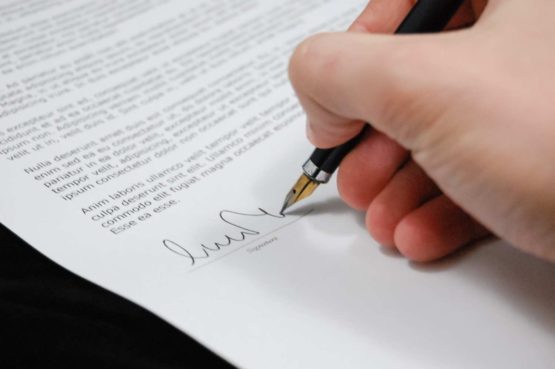How to Write a Grievance
Raising a formal grievance at work usually means you are in a difficult situation. Before you write the grievance, you should have first tried to resolve the issues informally and thought carefully about why you are raising the grievance and what you are looking to achieve.
We cover these points in more details here.
What we set out below is some guidance on how to actually write your grievance.
Issues at work rarely resolve themselves, so it is important to use any process (such as a grievance) to bring about a desired outcome.
We are specialists in helping people resolve their issues at work, either through advice or negotiating an exit.
Contact Blair
If you need help with a settlement agreement, please contact Blair for a free and no-obligation discussion.
You can call on 0207 118 9218
Email at blair@blairtoner.com
Complete this FORM
Key Points
Here are some key points when writing a grievance:
- It must be clear and concise.
- Keep it short and in date order.
- Focus on the most recent and most serious issues.
- Use dates.
- Include the specifics, such as what happened, who was there, how and what happened.
- Don’t reference compensation, taking legal advice, or make threats (such as making a Tribunal claim).
How should the grievance be set out?
We suggest it is always done in writing.
If the Company has an internal grievance policy, check how a grievance is to be raised and follow what it says.
Otherwise, where an email is fine, we suggest the grievance is a separate letter, drafted in the format you would use for any other formal letter, but please make sure:
- It is clearly marked as a
formal grievance
. - Is clearly dated.
Employers are meant to deal with grievances properly and within a reasonable time frame, so make sure there is no ambiguity that you are raising a formal grievance or on the date it was submitted.
What tone should I use?
The tone of a grievance is much like how we suggest your attitude/demeanour should be when attending formal meetings.
The tone should be professional, conciliatory, and written with the genuine belief that raising a grievance was your only option. Think formal and polite, not aggressive.
It is usually a good idea to draft the grievance then check it again later, where you can modify the tone. If appropriate, have someone else check it for you and give you feedback.
The Grievance Introduction
Often the most difficult part is just getting started.
Here are some Tips for the introduction:
- The first sentence can simply say –
I am writing this letter to raise a formal grievance.
- Remember, be conciliatory.
- Express regret with having to raise a formal grievance and explain why you felt like you had no other options (if there are still other options, consider whether you should try those first).
- Set out what attempts you have made to resolve the issue, such as meetings with your line manager or HR.
- If the issues are having a massive impact on you, then explain why.
Dealing with a grievance causes disruption and takes a lot of time, so employers will not take well to grievances being raised for no or minor reasons. You are seeking to persuade the reader (initially your employer) that you have been unfairly treated.
Setting out your Complaints
The main body of the grievance should be setting out the basis of your complaints.
We suggest you clearly mark each complaint, giving it a heading and a number.
Set the complaints out in date order and clearly reference the date. If you are not sure, give an indication.
Setting each complaint out in this way will ensure your employer addresses each in turn and if any are glossed over, it will be obvious.
It makes sense to focus on the most recent and most serious. If someone serious happened last week, focus on that, and not something minor that happened 2 years prior. We often see grievances raise historic matters that add little to the complaint, presumably because people think that everything should be included.
A short and concise grievance focussing on serious events is likely to be more effective than a 30 page grievance that is hard to follow.
Note the use of the word effective.
Please keep in mind why you are raising the grievance and what you are trying to achieve.
Be Specific. Avoid Labels.
We often see grievances that reference events by a label, such as, I was treated unfairly, my manager was rude, I was bullied.
Labels do not actually set out what happend. Your description of events need to include:
- When (the date).
- How (was it a meeting, email, phone call etc).
- What (what happened, what was said or done).
- Who (who was responsible and who was there).
For example, compare, I am raising a grievance because of the way my manager has been treating me,
and:
Incident 1 – 04 January 2023 – JJ Aggressive Behaviour
Last Friday (04 January 2023) I was in the meeting room on the second floor. I was alone.
My manager (JJ) came storming into the room (this was at approximately at 1pm) at he shouted – where is the f**ing report I asked for.
Before I was able to answer the question, he pushed my notepad onto the floor and said – get the report done now.
He then left the room and slammed the door.
As he left, I saw (SS) outside the door, I am pretty sure she saw and heard what happened.
After reading the above, it is clear what the complaint relates to, and we get the when, how, what and who.
There is no need to insult JJ or use labels, a clear description of the event is enough and much more informative.
Reference to Legal Claims
There is no need to refer to specific legal claims or the fact you have taken legal advice, if that applies.
However, if you think you have been discriminated against, victimised (ie, been treated badly because you previously alleged being discriminated against) or been treated badly because of raising other issues, you should make this clear.
The implications of these issues can be serious and complicated, so taking professional advice is recommended.
The Conclusion
After setting out the nature of your complaints, you can conclude the grievance.
If you want to stay employed, the conclusion should set out what outcome you are looking for. You are less likely to achieve resolution unless you put one forward.
If you want to negotiate an exit, then we usually suggest not to write a grievance first, but to start with without prejudice negotiations.
However, presuming you have tried that, or that is not an option, then (generally) we do not suggest you propose an outcome in your grievance (that should be done separately on a without prejudice basis). Instead, you can end by explaining how upset/let down you are and that you want the matters raised investigated whilst you consider your options (or something to that effect).
Writing an effective grievance is an important skill that can make all the difference in fixing issues at work, negotiating a settlement, or in a Tribunal claim. However, done badly, it can also make things worse. If you are having serious issues at work and are considering raising a grievance, this is usually a strong indication that professional assistance is required.
Contact Blair
If you need help with a settlement agreement, please contact Blair for a free and no-obligation discussion.
You can call on 0207 118 9218
Email at blair@blairtoner.com
Complete this FORM
Disclaimer
This blog is for information purposes only. Nothing should be relied upon as a substitute for legal advice and nothing written should be construed as legal advice or perceived as creating a lawyer-client relationship.
What Clients Say…
"Blair Toner is an outstanding employment law resource. I have instructed him in every type of employment tribunal hearing and am always impressed by his level of preparation and service offered."
Chris Cook, Head of Employment, Partner“I have instructed Blair Toner in a wide range of employment matters. Having witnessed Blair in action at the employment tribunal, I have first-hand experience of his abilities and skills. His attention to detail and knowledge of the minutest details of the legislation is most impressive, and is what makes him stand out as one of the best advocates I have instructed.”
Aarti Jagpal, Solicitor“Blair represented us in an Employment Tribunal claim from start to finish, including acting as our Advocate at the Trial. At all times Blair was extremely reassuring and professional in guiding us through the process and ensuring that we presented our strongest case. It was great to work with him and he represented us excellently."
Kuhrt, Executive Director, West London Mission
"Blair Toner is an outstanding employment law resource. I have instructed him in every type of employment tribunal hearing and am always impressed by his level of preparation and service offered."
Chris Cook, Head of Employment, Partner“I have instructed Blair Toner in a wide range of employment matters. Having witnessed Blair in action at the employment tribunal, I have first-hand experience of his abilities and skills. His attention to detail and knowledge of the minutest details of the legislation is most impressive, and is what makes him stand out as one of the best advocates I have instructed.”
Aarti Jagpal, Solicitor“Blair represented us in an Employment Tribunal claim from start to finish, including acting as our Advocate at the Trial. At all times Blair was extremely reassuring and professional in guiding us through the process and ensuring that we presented our strongest case. It was great to work with him and he represented us excellently."
Kuhrt, Executive Director, West London Mission












